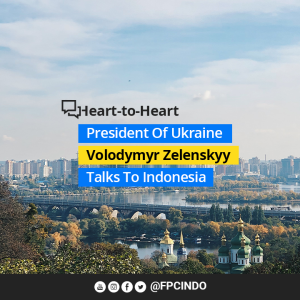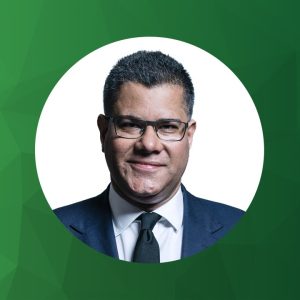COVID-19 Update: Indonesia’s Economic and Political Review 2020
On Wednesday, 20 May 2020, Foreign Policy Community of Indonesia (FPCI) has successfully convened its flagship discussion under the Corporate Policy Brief Program titled Indonesia’s Economic and Political Review 2020 . The discussion featured Masyita Crystallin, Special Advisor to the Minister of Finance; Andry Asmoro, Chief Economist of Bank Mandiri; Yongky Susilo, Board of Experts of Indonesian Shopping Center Tenants Association (HIPPINDO); Bambang Harymurti, Commissioner of PT Tempo Inti Media Tbk.; and Ralph Van Doorn, Senior Economist of World Bank Indonesia. The discussion was moderated by Donny Agustiady, Director of PwC Indonesia. Several business leaders who are also part of FPCI Corporate Members were in attendance.
Masyita Crystallin stated that Ministry of Finance (MoF) has estimated that economic growth will be around -0.4% to 2.3% for this year due to the outbreak. Non-formal sector and the SMEs are the first to get hit because of the nature of the pandemic that requires physical distancing measures. MoF has done reallocation of state budget to support the regional government to bolster economic recovery. There is an additional Rp 15.1 trillion to help the regional government consist of Rp 5 trillion of Regional Incentive Funds (DID), Rp 9.1 trillion of Physical Special Allocation Fund (DAK), and Rp 1 trillion of provision of loan facilities to the regions. To help the SMEs, MoF gives the interest rate subsidy.
Andry Asmoro pointed out the challenges came along with the COVID-19 outbreak for the banking industry which consist of six areas: uncertainties over the duration and severity of the pandemic, downturn in the global economy and its impact to the Indonesian economy, lower commodity prices due to global economic slowdown, weakening purchasing power because of the weak economic growth, tightening liquidity in the banking system, especially in smaller banks, and worsening asset quality due to weak economic condition. Additionally, he mentioned that strategies to fight the threats posed from the COVID-19 pandemic for the banking system is to conduct loan restructuring to assist debtors that are being impacted by the pandemic and this move is supported by the government through their economic stimulus.
Yongky Susilo opened his presentation mentioning that due to the large scale social restriction measure, malls and traditional markets are closed except for the Fast Moving Consumer Goods (FMCG). The word “new normal” is being discussed everywhere, but Yongky Susilo viewed that Indonesia will go back to ‘normal’ in terms of the consumer behavior. According to him, while some marketing perspectives explain certain potential for ‘winner’ or ‘loser’ in some sectors, he believed that all sectors are ‘loser’, there is no ‘winning’ sector. He provided a data as of March 2020 retail lifestyle went down to 40% but in April 2020 the number is at 5% or 0%. The same significant decline happened to hotel and Food and Beverage (FNB) businesses. Despite doing the sales via online, they are doing business for only 30% of regular business. He suggested that both central and local government should eliminate tax until December 2020.
Talking from the political perspective, Bambang Harymurti said that government of Indonesia’s response towards the outbreak can be labeled as ‘Denial First, Overwhelmed Later.’ In the context of global benchmarking of the response, Indonesia can be said to have a ‘Late and Haphazard Response.’ He also talked about the challenge of Indonesian leadership which is the trolley dillema or the Tyranny of ‘Or’ describing the current situation as a competition of Jokowi’s handling of the pandemic versus Anies’. According to him, in this time of crisis, we might reveal who will be a good candidate for our future president in 2024 by seeing how local leaders handle this pandemic.
At the end of the presentation, Ralph Van Doorn conveyed that there will be a global downturn and this will impact Indonesia; there will be a sizable rise in poverty; fiscal packages are shifting away from infrastructure to health, social safety, and industry support. There is still a lot to be done in 2020. In recovery, focus on boosting spending on infrastructure, maintain spending on human capital and ensure financial soundness. Focus fiscal strategy and credible measures to raise revenues back to pre-2018 level in order to flatten the debt curve. Testing is not a silver bullet, but Indonesia needs to test a lot more to help alleviate the very strong trade-off between public health and economic health.





